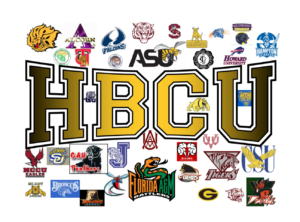
The importance of deciding where to go to college is certainly not new, but we’ve seen ongoing
discourse about the importance of attending an HBCU across social media platforms. At the
same time we’re witnessing increased efforts by companies specifically seeking to hire HBCU
graduates.
HBCUs were founded to give Black people the opportunity to pursue higher education because
we were not welcome at established institutions due to segregation and racial discrimination.
Since segregation would continue well after the first HBCU was established, we had to curate a
higher education experience that was fulfilling for the needs of our people.
When HBCUs are mentioned, the culture being an unmatched experience is always at the top of
the list of attractions. Whether that be the style of play from the bands, the welcoming
experience when you step foot on campus, the captivating homecoming atmosphere or the
daily fashion show from the student body, it is always the topic of discussion.
If you ask Alanah Weaks, a junior political science transfer student from Georgia State
University, in addition to the culture being unique, it is enticing.
“I came to FAMU to visit a friend. At the time I wasn’t considering transferring but after touring
and experiencing the culture and events around campus, I fell in love with FAMU. At my PWI I
felt as if I was only a number. At FAMU I feel a part of something more.”
A great deal of this discussion includes students having stories of their families or high school
guidance counselors encouraging them to stay away from HBCUs, receiving irresistible amounts
of scholarship money or simply being unknowledgeable about the institutions altogether.
“I was talked out of attending an HBCU. I didn’t know much about them, and my state
university was free with the scholarships I had received. As a first-generation college student
scared of taking on debt, I chose the safe option. But I became unhappy at my institution,”
Weaks said.
Adversaries of HBCUs try to dismiss the institutions as second-class schools that have nothing of
substance to offer in the post-grad world but nothing could be farther from the truth as some
of the most notable and successful Black leaders and professionals are HBCU graduates.
According to the United Negro College Fund, HBCU graduates can expect to earn an additional
$927,000 in their lifetime than they would without their HBCU degree.
“Social media may have had a slight impact on my decision, but I have witnessed my dear friend
receive many opportunities, internships, and connections here at FAMU and that ultimately led
me to transfer,” Weaks said.
In today’s world you can watch the day in the life of an HBCU student on social media platforms
like TikTok, YouTube and Instagram with the scroll of a thumb. High schoolers and college
students get on social media every day and see HBCU students interning for the NBA, NFL, JP
Morgan & Chase, Disney and even Capitol Hill. According to Hopelab and Well Being Trust in
2018, 93% of people aged 14-22 use social media daily and despite a decline in enrollment
among all U.S. colleges and universities, federal data from 2017 showed a 2.1% increase of
enrollment at HBCUs from the prior year.
For the high schoolers and college freshman and sophomores who may not know of anyone to
get first- hand knowledge from, social media is telling them the story of HBCUs and
demonstrating that there is nothing second-class about the network and opportunities these
schools provide.